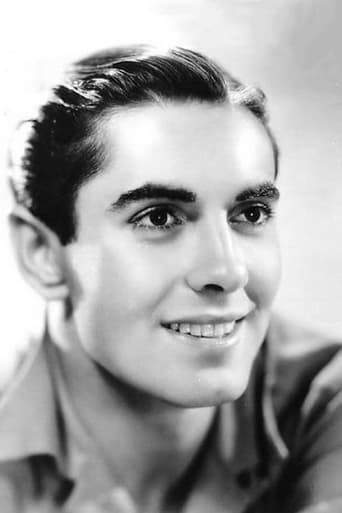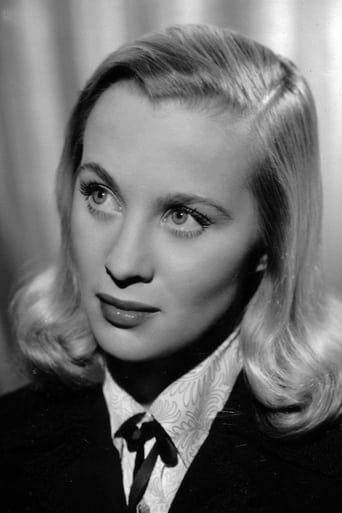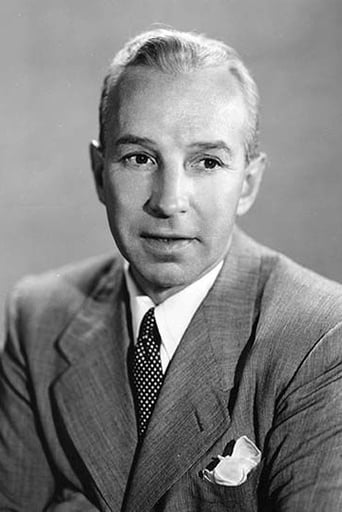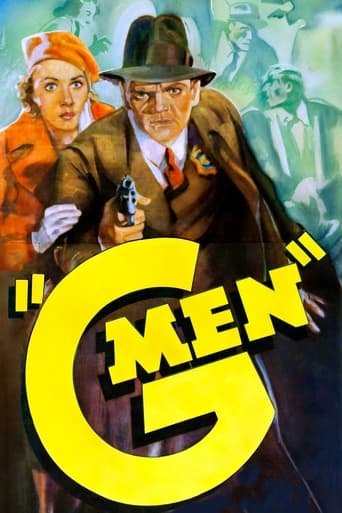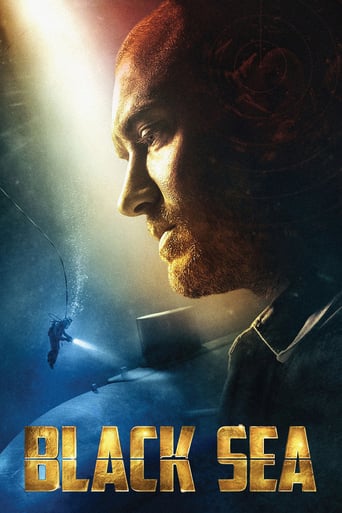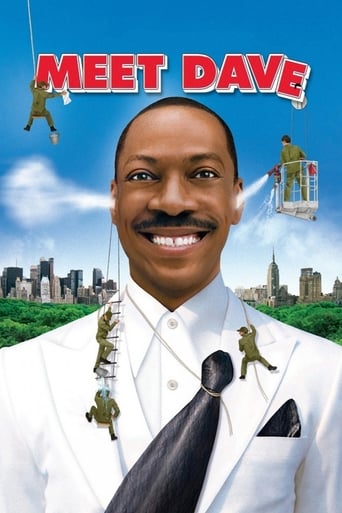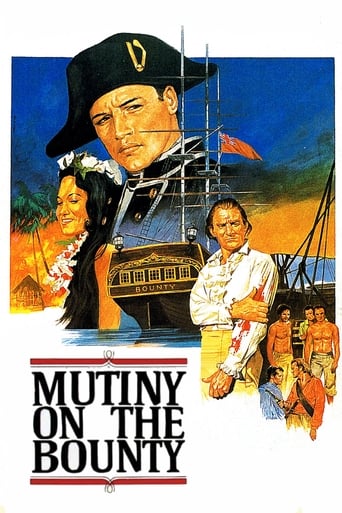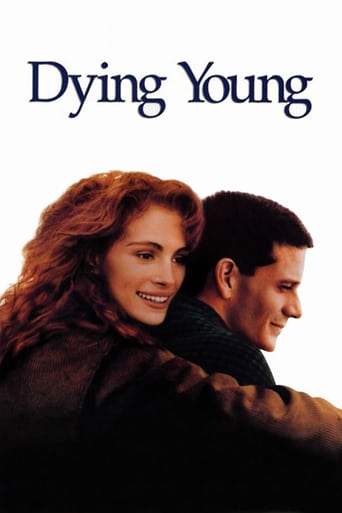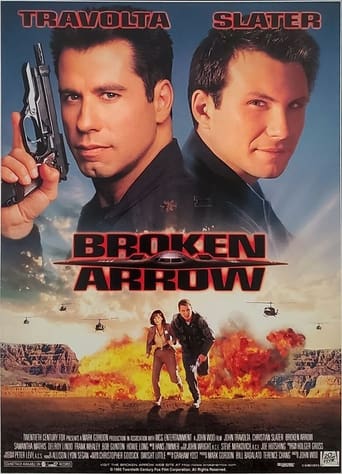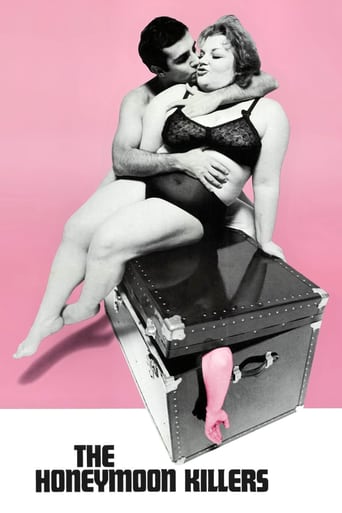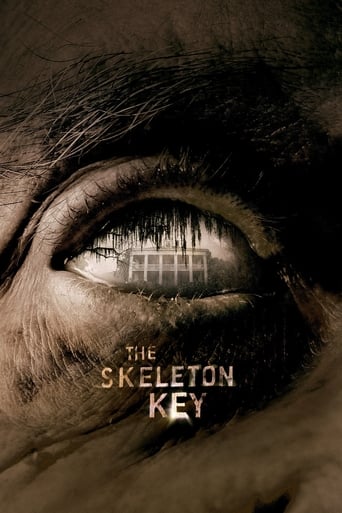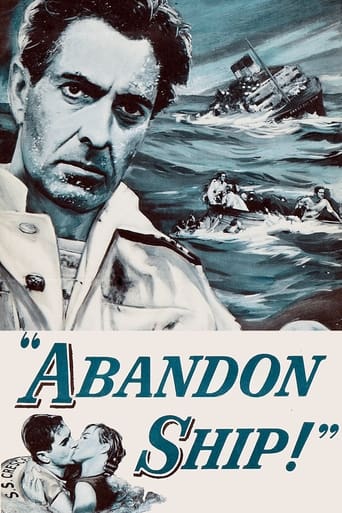
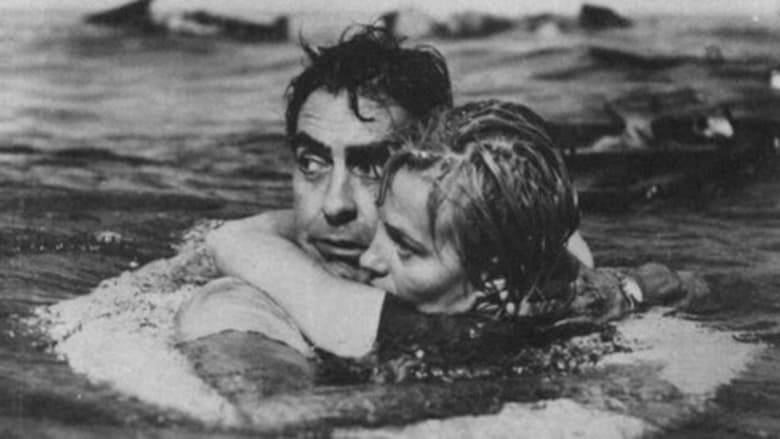
Abandon Ship (1957)
After a massive luxury liner sinks into the ocean, the ship's officer must command a rickety lifeboat, built for only nine, that is stuffed with over twenty desperate and injured passengers. As a hurricane approaches and the many wounded passengers struggle for life, difficult decisions must be made about who will remain on the boat and who must be cast to the sea in order to give others the chance to survive.
Watch Trailer
Cast


Similar titles
Reviews
Powerful
It's no definitive masterpiece but it's damn close.
Good story, Not enough for a whole film
Am i the only one who thinks........Average?
I don't care if it's true that passengers in the lifeboat from the sunken ship 'William Brown' in this supposed 'true-story' film were thrown overboard so that some of the other passengers may live. If that's how it happened in real life, then the perpetrators got it DEAD WRONG.They missed the whole point of humanity, and so did the lame 'captain' in this movie, being weakly portrayed here by Tyrone Power. Ironically, this may be his best role since he's directed to be a martyr instead of a smiling hero. Then again, ANYBODY can appear to be a 'good actor' if they just frown the whole time.Nope..... sorry folks. It was an abomination of human spirit that made people sacrifice the lives of others so that 'at least a few others' could live. They got it WRONG, and so did you if you think you have the right to decide who's going to live and who's going to die. Check your brains..... if you have any.
No need to recap the much-repeated plot. I'm not sure which came first— this movie or the "Lifeboat Paradox" used as illustration in many college courses in ethics. What the lifeboat situation sets up so starkly is the clash between two prevalent theories of right and wrong. These two are worth taking a brief look at since their conflict makes up the crux of this intense melodrama. Ty Power ends up opting for a Utilitarian standard where the aim of correct conduct is to bring about the greatest good for the greatest number of people. This standard okays sacrificing some in order to save others in circumstances where all other alternatives would result in less 'good' for a fewer number of people. Under the desperate circumstances, Power is approximating that standard by sacrificing those least likely to survive in order to save those most likely to survive, while the 'good' to be maximized is individual survival. The classic objection to this theory is that it can justify sacrificing the innocent in order to bring about a 'greater good', whatever good or value that might be. Here the weak and the injured are cast adrift through no fault of their own, and it's this aspect that's so repugnant to ordinary sensibilities, such as the professor's. But, it's well to keep in mind that a Utilitarian standard is used all the time when making life-and-death decisions in wartime. So-called "collateral damage", for example, amounts to a rough utilitarian calculus applied during bombing campaigns where civilian casualties are inevitable. What's so unnerving in the movie is that unlike bombing campaigns we can put names and faces on those sacrificed, which is why Power is advised not to get too familiar with the others.This utilitarian theory conflicts with a second theory, the more conventional Egalitarian standard, which holds that all human life is of equal value. On a strict application of equality, no person should be sacrificed for the benefit of another, and when human life is held as the supreme value, some version of pacifism would appear the logical conclusion. Without viewing the film a second time, Stephen Boyd's character, I believe, comes closest to acting out a consistent Egalitarian standard since he refuses to sacrifice another without sacrificing himself. (In passing—Moira Lister's sardonic young woman appears to admire Power's strength of character simply for his strength and not for whether he's made the morally right decision. Suggesting that strength of character is in some sense more basic than right and wrong points toward the amoralism of the German philosopher Friedrich Nietzsche.)Anyway, the survivors, including Power, begin the ordeal by holding to presumably some conventional form of egalitarianism. But under the pressure of circumstance, they give in to Power's conversion to a utilitarian view of the situation. However, when rescue comes and the pressure is off, they revert back to convention, leaving Power to take the heat and deal with the law. This suggests that Power may end up being something of a martyr to their survival. After all, the law, at least as we proclaim it, reflects an egalitarian standard (everyone is equal before the law), and on that basis Power is guilty in some sense of a crime since he has valued some lives over that of others. Nonetheless, has Power done anything more blameworthy than, say, a bomber pilot who kills x-number of civilians in utilitarian pursuit of the greater good of winning the war. We pin medals on the latter, but the former, we're informed, was jailed for six months.I suspect the movie is correct in suggesting that under normal circumstances people identify with the more idealistic equality standard. But in severe conditions, we're likely drawn in a more pragmatic utilitarian direction. Nonetheless, the two really do clash at a fairly basic level. Whatever one's opinion on these matters, the film dramatizes the academic issues pretty effectively.The movie itself offers little relief from the dire predicament the survivors are in. It's pretty much 90 minutes of harrowing grimness. I can't imagine the contents made money, at the same time I think it's a tribute to the producers that the film got made at all. As sheer entertainment, the film's value may be questionable, but as a prompt for getting audiences to think about questions of right and wrong, I believe it succeeds admirably.
As gripping and powerful as it is, ABANDON SHIP! is a survival story that's hard to view from the comfort of an armchair or theater seat. The viewer can identify so completely with the daunting task facing the ship's officer (TYRONE POWER) when making life and death decisions with regard to how many people can use the lifeboat when a sunken ship leaves them adrift at sea.True, there are a few stereotypes among the raft's passengers, but the drama becomes real and forceful due to the strong performances from an excellent cast. MAI ZETTERLING is fine as a nurse with a romantic relationship to Executive Officer Power and STEPHEN BOYD and LLOYD NOLAN are fine as other ship officers caught up in unusual circumstances surrounding their survival at sea.Not for the squeamish, it has echoes of Hitchcock's LIFEBOAT (but without the humor).Tyrone Power was at a stage in his career when he wanted more serious roles rather than stay forever fixed in the minds of movie-goers as a swashbuckling star. Here he certainly had his chance to prove his acting skills and he does a splendid job in a grim role, one of his last parts before his premature death from a heart attack at age 45.
I don't feel that I MUST praise this film just because it's fifty years old and stars Tyrone Power. I just didn't think it was very good. Yes, Power is the leader who "has greatness thrust upon him" and rises to the occasion of making terribly difficult moral decisions for himself and others. But as that struggle is in fact the very essence of the story, which otherwise takes place entirely in a small boat in the middle of the ocean, I think we're entitled to some real drama in its unfolding, however the writers and director might choose to communicate it. Watching Tyrone Power just grit his teeth and forge ahead may have been very sexy to a certain audience, but it was highly unsatisfactory at least to this viewer. The highlight of the film was the supporting cast's performance: several ancillary characters were developed far more than that of the protagonist.


